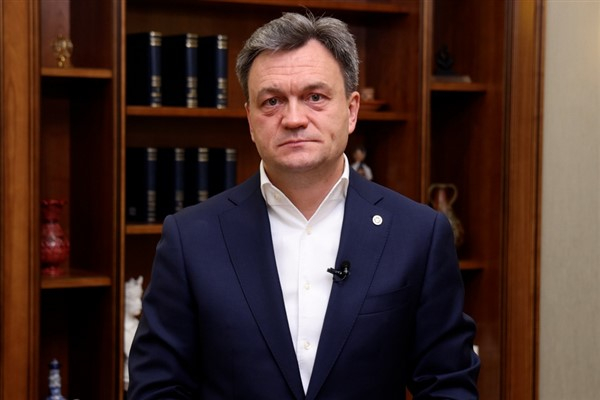Biden's sanction statements, which could not go beyond the classical template, did not cause a shock effect and kept the general mood soft. Biden described Russia's move as "the beginning of the invasion" and declared the "first wave" of sanctions. With few oligarchs accessing financial assets and a few Russian banks covered, the effects of the package, which remains in a limited area, may be short-lived. Two Russian banks, VEB Bank and Russia's military bank Promsvyazbank, will be affected by these sanctions. In addition, this first package of sanctions will also affect the debt of the Russian government. With this move, the West generally aims to cut Russia off from its current financing network and system. However, we will see if Russia will hold back from its demands and actions. Western measures may not be as strong as they seem at first glance. More Russian moves could result in new items being added to the sanctions package.

1-week implied volatility charts of selected currency types… Source: Bloomberg
In the developments so far, we have received signs that the factors of the crisis will continue to be alive in their current state. Measures prepared by the White House include actions that affect Sberbank and VTB Bank in the event of an invasion, as well as export control measures coordinated with numerous allies and partners. The most significant move came from Germany, which announced that it had stopped certification of the Nord Stream 2 pipeline and jeopardized the $11 billion project that would solidify Russia's dominance over the European energy sector. Nord Stream 2 is an inactive line and changes the route of the energy flow. However, if Gazprom increases the unit price of the gas it sends to Europe, the cost effect may be rooted. Even if Europe substitutes Russian gas from other markets (Qatar, USA, Australia etc.), decreasing bargaining power will cause them to bear more costs.
We can summarize the energy and commodity side as follows: Europe's biggest weakness is that it does not have a local substitute energy source or a size that can replace Russian gas even if it is possible. There is still a possibility that the commodity supply will be shocked. If there is a Rusal sanction, it will create a serious shortage in aluminum supply, so it is possible that existing contracts will not be affected. Rusal was the subject of sanctions in 2018 and the sanctions were lifted in 2019. With this reference, of course, there may be limited effect.
The presence of the Russian threat creates a dilemma as there will be more pressure on Europe over the necessity of a NATO under US domination. For Biden, the midterm elections, which will change several seats in Congress, are approaching, and the popularity that has fallen due to poor economic management must be supported by political action. Keeping the concern about a Russia that may spread to Europe at any moment alive is also necessary in terms of the influence of the US on Europe. On the one hand, a Europe that will not make the allocation of economic resources independent by increasing its military expenditures, and the presence of American bases on the continent will mean that the direction of the USA will remain valid in terms of its economic and political sphere of influence.
Tensions in the region may turn to a different dimension with Russian separatists' territorial demands beyond Donetsk and Luhansk. An armed movement out of these two oblasts will lead to a more hawkish attitude towards the judgments that Russia is attempting an invasion. If new events occur in regions such as Kharkiv, Dnipropetrovsk, and Zaporizhzhia, it may be an option for Russia to be included in the event to support the Donetsk and Luhansk People's Republics. The independence of the regions or their possible annexation to Russia will also constitute a recognition by Russia's allies. South Ossetia and Abkhazia, which declared independence in the Georgian crisis, are recognized by a few countries other than Russia, such as Syria, Nicaragua, and Venezuela. Due to political alliances, Belarus and Kazakhstan may also recognize it. The international community and NATO, on the other hand, will describe the event as a de-facto and will continue to see Donbas as a part of Ukraine, just like Crimea.
Within the framework of the plans implemented by Russia to overcome the financial sanctions that it received from Crimea in 2014, there is also the opportunity to overcome the new sanctions package. The most challenging issue here is the possibility of borrowing using the bond markets. Since there will be no Western financing, the quality of borrowing will decrease and its cost will increase. Russia will try to overcome this situation through non-sanctioned correspondent banks. It is positive that there are no sanctions for Sberbank and VTB yet, but these banks may also be sanctioned, depending on the situation. The banks that are currently in the US and UK sanctions package are Rossiya, IS Bank, General Bank, Promsvyazbank and Black Sea Bank.
Ruble volatility will increase in the next phase. The Central Bank of Russia managed the 2014 crisis with an intense foreign exchange sale. The reserve obtained from oil revenues strengthens the hand of the Central bank. Currently, the implied 1-week option volatility of the ruble is at 40.61, surpassing other EMEA coins in the same category. It is accepted that the derivative products of the instrument with increased implied volatility are priced more expensive and the risk premium of the related instrument increases. We are likely to see more volatility as ruble short positions increase as the crisis continues. The ruble sentiment of the market may also be reflected in oil and derivatives.
Kaynak Tera Yatırım
Hibya Haber Ajansı





